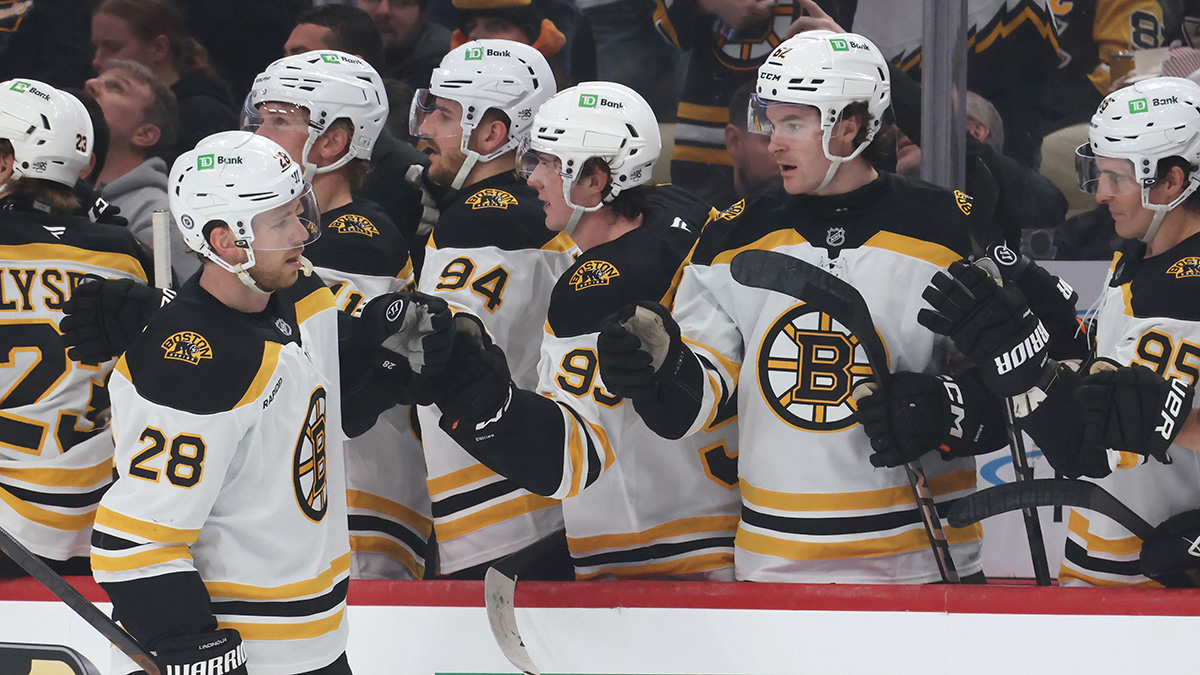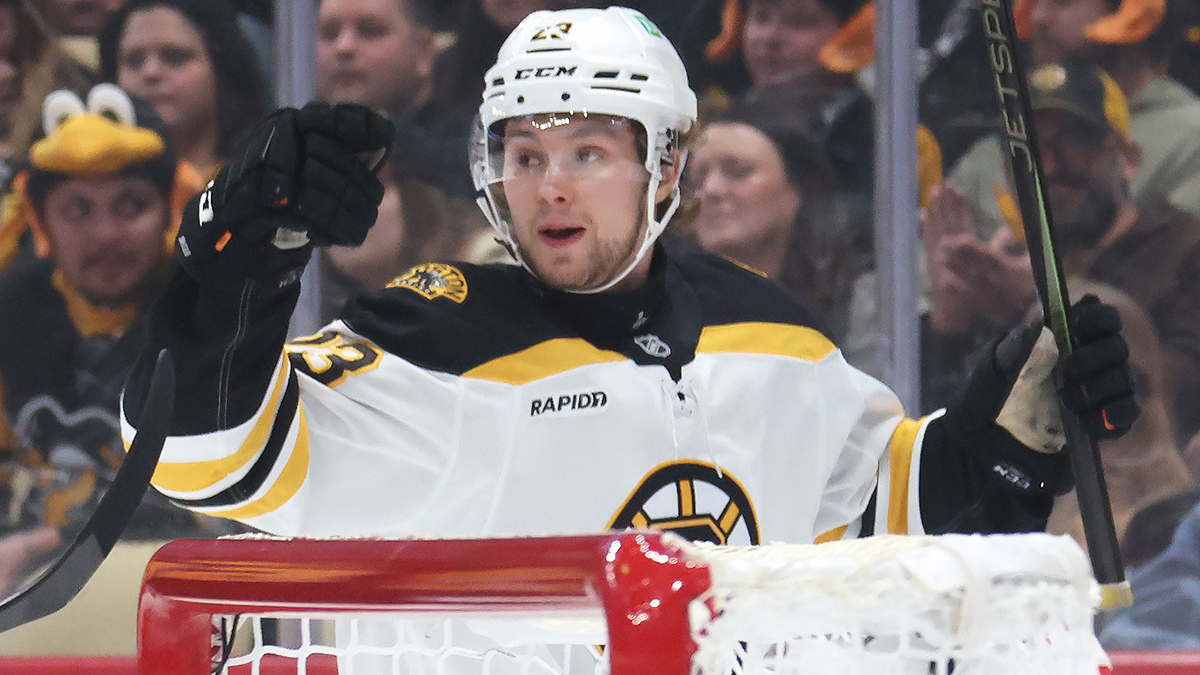
David Krejci missed both ends of back-to-back games for the Bruins this week, and it marked the third separate time this season the 31-year-old center has missed time with what’s assumed to be back problems.
In between the injury absences, Krejci has actually been pretty good with five goals and 14 points in 18 games played, but the playmaking center has also missed almost as many games (14) as he’s suited up for this season. The hope is that the nagging issue clears up as the season goes along similar to the way Patrice Bergeron seemed to move on from the injury doldrums last season.
Maybe a couple of games missed will allow a rested Krejci to jump right back in with the Bruins on Thursday against Winnipeg, and finish up the last two games before getting a three-day NHL holiday break around Christmas. Shutting him down for the rest of the week and essentially giving him a week of rest might be the more prudent move, however, and pay dividends with better health on the other side of the holiday.
MORE: Win in Buffalo shows Bruins growing up before our eyes
But a back injury is a completely different kind of issue altogether, and it’s a legitimate question to start wondering just how concerned everybody should be about the long-term status of Krejci’s “upper body issues.” Will every bone-rattling hit absorbed by Krejci’s body be the one that knocks him back out of the lineup? Or will a strategically aimed cross-check to his lower back be the blow that finally thrusts him onto the injured list for the long-term?
The unfortunate truth is that Krejci is on the wrong side of 30 years old now, and has missed an average of 15 games per season and counting over the last four years. He’s taken a physical pounding over the 819 career NHL games he’s played in the regular season and playoffs, and Krejci has never been the biggest hockey body in the world at 6-foot, 186-pounds. He managed to play all 82 regular season games last year despite coming off a hip surgery, but then Krejci felled by a mystery injury during the playoffs that might just have been the cranky back acting up.
A knee injury eventually knocked Krejci out of the first-round against the Senators as he was playing at far less than 100 percent, and it might have been a harbinger of things to come. It’s a tough dilemma for the Bruins because their roster is built around the two frontline centers in Patrice Bergeron and Krejci, and the power play and forward depth weaken noticeably when he’s not on the ice.
Boston Bruins
Find the latest Boston Bruins news, highlights, analysis and more with NBC Sports Boston.
But the reality of the situation is this is what the Bruins agreed to when they inked Krejci to a six-year, $43.5 million contract three years ago, and also armed him with a no-movement clause that makes him completely untradeable. It’s the worst contract that Peter Chiarelli saddled the team with prior to his dismissal, and all the Bruins have left is to hope that something like a lingering back injury doesn’t hasten the deterioration of Krejci’s game.
When healthy, Krejci is still effective albeit probably never the player that should be the highest paid forward on the team. That hasn’t always been the case in recent years.
The one recent bright spot for the Bruins is that Ryan Spooner has stepped in for Krejci over the last two games, and has done a good job of centering rookie wingers Anders Bjork and Jake DeBrusk. Spooner has three points in the wins over the Blue Jackets and Sabres while playing a top-6 center role in place of Krejci, and the speedy center actually has been a point-per-game player over the last five games (1 goal, 4 assists) that he’s played for the Bruins. It feels like Spooner has allowed Bjork and DeBrusk to play at a higher gear in their skating game, and both first-year wingers have responded with strong performances as well.
It’s something that certainly hasn’t gone unnoticed by Bruce Cassidy, and perhaps would keep those three young players together on a line even if Krejci were to suddenly return to good health.
“I liked the way they played. They had one shift in the third period where they could have been a little harder on the puck, but that’s okay and that’s part of it,” said Cassidy. “I liked their game the last two games as a line. They’re making things happen and they’re trying to play a responsible game.”
Spooner isn’t the player that Krejci is and a quick perusal of their respective NHL body of works will tell you as much, but No. 51 has been good for the Bruins this season when his groin has felt good enough for game action. All that being said, the Bruins need a healthy, productive Krejci if they’re going to hit their highest potential ceiling in a season with hopes for the postseason. At this point, there’s a real concern that his back problem is something the Bruins will be forced to manage for the balance of this season, and will mean never being able to truly count on him as an automatic lineup piece.
If that’s the case, then it makes one wonder how well - and how long - Krejci is going to be able to hold up with four-plus months of heavy-duty hockey still in front of him.


